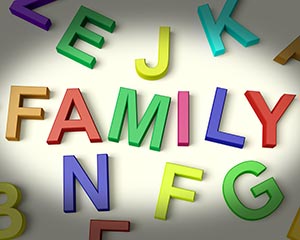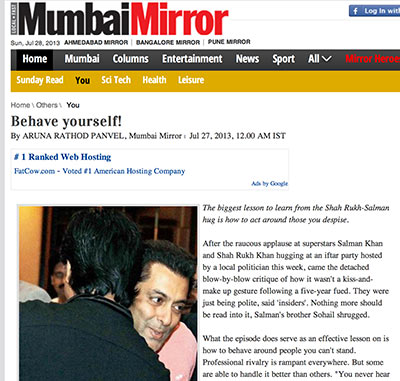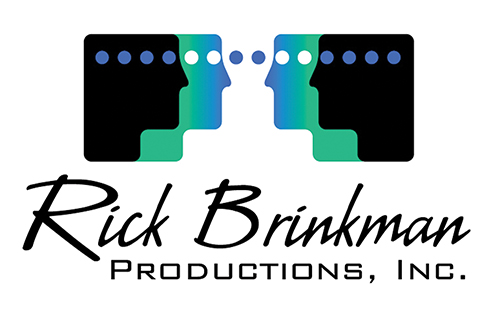Announcing the Online Class: Conscious Communication University Learn how to become a masterful communicator and handle difficult behaviors like, whining, negativity, attacks, tantrums, withdrawal and more.
Viewing entries in
Difficult People
(from Dealing with Relatives, Brinkman & Kirschner, McGraw-Hill) There are three “Magic Numbers” to know when it comes to dealing with your relatives: Geography, Frequency, and Time
To help you go from “have to” to “don’t have to” to “don’t want to” or “really want to!” we offer you a pre-obligation checklist. While you don’t have to use it, you may want to give it a try.
Everyone has family that is sometimes difficult to deal with. But if you’ve had it with the criticism and rudeness, if you’re fed up with interference, tired of taking orders, unwilling to be taken advantage of, or frustrated with egotism,don’t despair. Remember, you always have a choice. In fact, you have five choices:
An association is a trigger like the song or smell that suddenly transports you back through time. When it comes to family both the people and the environment are powerful triggers.
DEALING WITH RELATIVES - Tip Du Jour "Dealing with Criticism"
When being criticized the first thing to always keep in mind is that when people criticize, they are the ones with the problem not you. They have an issue with something and are projecting it on you.
The second thing to do is not engage in the content of the communication. Keep the focus on them, not you. You do this by speaking to "intent" and not "content". Intent is the purpose behind a communication. Content is the communication itself.
So if someone makes a rude comment about how you look, instead of defending yourself you can just say, "Well I didn't realize how fashion conscious you were." You are making a statement about her, not you.
Even better is to project positive intent. That means you act like she has good intentions even if she doesn't. An example of this would be, "Why thank you for caring about how I look. That is so sweet of you."
You have now accomplished a two fold purpose. One, if she is out to get you and you can't be gotten, it messes it up for her. Second you have trapped them into the positive intent. It is unlikely they will say, "No you stupid #^&*# I'm trying to cut you down.” Instead they will not deny your positive projection and will be forced to go along with the positive direction you set.
What if the criticizer is a parent? With parents, projecting positive intent is absolutely, positively the way to go. If they say you are fat, thank them for caring about your health and well being. If they want to know when you are getting married, appreciate them for caring about your relationship happiness.
These kinds of positive projections will melt a parent. Parents in general feel under appreciated by their children. Usually when you positive project on a parent they roll over and start kicking their leg like a dog getting it's stomach rubbed. They will forget all about what they were criticizing you about and bask in your appreciation. Then you can just change the subject.
Prepare yourself! What positive projections will you say, when they say, what you know they will say. ;-)
 FIND SOMETHING SPECIAL
This is one of my favorite story / strategies told to me while doing interviews for the Dealing With Relatives book. It’s about going to a family gathering with the attitude of finding something special.
FIND SOMETHING SPECIAL
This is one of my favorite story / strategies told to me while doing interviews for the Dealing With Relatives book. It’s about going to a family gathering with the attitude of finding something special.
"Attitude is so important, you have to look for the good. When I was a little girl my dad used to play a game with me. We would go out for long walks, and in order to get me to walk another few minutes with him, he’d say pick a number between 50 and 200. Then we would walk that many steps, stop and look for treasure. And the neat thing was, when we looked, we always found something to treasure. Whether it was a pretty rock, a bug, or a leaf, branch, or flower, there was always something to appreciate as special.
So now when I go to a family gathering, I look for something to treasure, and sure enough, I always find something. It could be a three minute conversation with an uncle, or with a cousin I haven’t talked to before. One time I was chatting with the 24-year-old son of my cousin and his girlfriend, people I didn’t really know at all. They were fascinating people who were cool natural-food types and did interesting things in their lives. We had fun talking for an hour.
And the only reason this conversation happened was that I had decided ahead of time to look for a treasure. I saw people I didn’t know, and I sat down with them to see what treasure was there."
What's your special attitude going to be?
 Over the next couple of weeks I'll be posting my favorite stories and strategies I've heard for dealing successfully with relatives. Here's the first:
Over the next couple of weeks I'll be posting my favorite stories and strategies I've heard for dealing successfully with relatives. Here's the first:
Have a Mantra. There's a couple I know, who before leaving the house for an event, will look each other in the eyes and simultaneously say, “Just visiting.”
When they arrive, but before they ring the bell they look at each other and say, “ Just visiting.“
During the event if things start getting stressful they just give each other the look and silently say to themselves, “Just visiting.”
A pair of adult sisters use with their mother, “She's just making conversation.” That prevents them from getting caught up or taking too seriously their mother’s wild tangents or illogic. Instead they remind themselves, “She’s just making conversation,” and that gives them permission to not engage, but just simply change the subject.
What's your mantra?
Dr. Rick Brinkman and his grad assistant Neelix, explain why when people do communication training together, they reinforce each other into positive behaviors and the results are exponential. They also talk about the December training opportunity. (1 min) http://vimeo.com/79059269
I performed a webinar out of my own green screen studio for The Executive Roundtable recently. It was about the following.
Dealing with difficult people is something that everyone does on a regular basis. Leaders, in particular, may find themselves trying to manage and motivate people that they find challenging. But what makes some people more challenging than others? People often ask me what type of behavior is the most difficult to deal with. The answer isn’t that straightforward.
From my experience, here’s a list of the 10 most unwanted communicators:
The Tank
- : confrontational, pointed, and angry; the ultimate in pushy and aggressive behavior.
The Sniper
- : rude comments, biting sarcasm, rolling of the eyes.
The Grenade
- : brief calm followed by unfocused ranting and raving.
The Know-It-All
- : low tolerance for correction and contradiction.
The Think-They-Know-It-All
- : able to fool enough people that they are right.
The Yes person
- : eager to commit without thinking things through, which leads to resentment.
The Maybe person
- : procrastinates in the hope that a better choice will present itself.
The Nothing person
- : no verbal feedback, no nonverbal feedback. Nothing.
The No person
- : fights a never ending battle for futility; defeating ideas with a single syllable.
The Whiner
- : perfection is their standard, and no one and nothing measures up to it.
When people ask who the most difficult person is, I know that they’re secretly hoping I’ll tell them that the most problematic behavior is, in fact, the one exhibited by their #1 “problem” person. After all, it would validate that they are dealing with a jerk … and that they are not responsible for the problem.
But the truth is that difficulty is in the eye of the beholder: If you don’t know how to handle a behavior, it will be challenging for you. Because everyone reacts to thorny people differently, the behaviors that drive one person crazy won’t affect another person at all.
I recently spoke for a group of 75 people, 74 of whom were attending to learn how to deal with one “Tank” vice-president. A lone dissenter stood up and told her colleagues, “I don’t see what the problem is you people have with him. He’s a no-brainer to deal with.” Because she was wired differently than the rest, his behavior didn’t annoy or intimidate her.
Everyone has some skill handling certain behaviors. Other behaviors make us absolutely crazy because we’re missing the knowledge and/or attitude needed to successfully deal with the “problem” behavior. That’s where it pays to be a Conscious Communicator. By paying attention to what works — and what doesn’t — in human interaction, you can expand your communication skill set and achieve greater harmony with the people around you.
Which Behaviors Are Difficult for You?
In general, people who exhibit Get-It-Done behaviors are driven crazy by whiny or wishy-washy behaviors, because neither of these behaviors produces results. Whiners get nothing done because they are too busy wallowing in self-pity. Likewise, wishy-washy people accomplish little because they are fabulous at making commitments — and not keeping them. On the other hand, people who are friendly and desire harmony are intimidated by aggressive Tank-style behavior. People who are more expressive and emotional are driven crazy by Nothing people, who tend to be quiet and withdrawn, and vice versa.
Avoid or Play Nicely? Avoidance can be a valid strategy when dealing with people exhibiting difficult behaviors. After all, dealing with a difficult behavior takes a lot of work, so you must ask yourself if the relationship or job is worth the energy you must spend dealing with the problem person. If it’s not worth the price, it might be easier to leave the situation … or to get the other person to leave.
Unfortunately, leaving or otherwise avoiding a situation is not always possible. Perhaps you don’t want to quit your job … or your problem person is a close relative. In this scenario, you have to change your attitude, a process that starts by focusing on how you would benefit by changing your own behavior or attitude. When you successfully learn how to handle a difficult behavior, you’re doing yourself a favor — not only this time, but every time you encounter that behavior.
For people in leadership positions, learning to successfully deal with all problem behaviors is extremely beneficial. A leader’s job is to bring out the best in others, as well as to orchestrate a successful working environment, which means you can’t afford to have a difficult behavior destroying the morale or productivity of your team. Over the course of a career, you will work with all different types of people. Knowing how to deal with all of them gives you a competitive edge over colleagues who don’t practice Conscious Communication.
I have made the big time! ;-)Actually the Mumbai Mirror is part of the prestigious Times of India group. I am honored to help. Full Article Here

http://vimeo.com/69394371
 A study found that by reacting to a person, rather than ignoring them, causes more stress and distraction that lasts far longer than the actual event.
I was honored to be a communication expert in this article at Woman's Health where the theme is "when to hold'em, when to fold 'em" or when do you do something about a behavior and when do you let it go. In this article I answer the age old questions of what to do if:
A study found that by reacting to a person, rather than ignoring them, causes more stress and distraction that lasts far longer than the actual event.
I was honored to be a communication expert in this article at Woman's Health where the theme is "when to hold'em, when to fold 'em" or when do you do something about a behavior and when do you let it go. In this article I answer the age old questions of what to do if:
The situation: A woman cuts you in line at Starbucks
The situation: Your boyfriend / husband leaves his dirty clothes strewn over the floor for the hundredth time
The situation: Someone keeps texting in the middle of a movie
The situation: While you’re walking down the street, a dude hollers, “Hey baby, lookin’ good!”
The situation: Your slacker coworker asks you to help him finish his quarterly report
The situation: A close friend shows up an hour late to your birthday dinner
The situation: During holiday dinner, Uncle Marvin says, “You look really tired.”
Though we are associated with "Difficult People our book is not about personality types. We find it more effective to think in terms of behavior and what motivates it. Why when under stress does one person whine, another attack, another withdraw, while others go passive aggressive. There are four factors that influence where people go in our Lens of Understanding human behavior.
1. Organizational culture
2. Job function
3. The people around us
4. Personal programming
Organizational culture is the behaviors both good and bad, that are considered acceptable and forbidden.
When I presented seminars for IBM's leadership series and talked about the Grenade tantrum, consistently half the IBM’ers in the room would say “I can’t imagine somebody doing that at work.” While the other half of the room would say, “Oh yes they do!”
The difference was the half but couldn't imagine it were IBM’ers who were always at IBM. The half that said “Yes they do”, were IBM’ers who get sent to someone else's facility. They realized their corporate culture didn’t tolerate grenade tantrums. However, Tank (attack) and Know-it-all run free as protected species.
I performed some programs for Chevron and people told me they have a term called the “Chevron Yes”. What that means is you are pleasant and agreeable on the surface but that doesn't mean you really agree or will follow through.
A second factor is job function. I noticed professional nurses can easily get into whining because often they are on the front line knowing what needs to be done, but trumped by a Tank or Know-it-all doctor and limited by a hospital bureaucracy. The result of that equation is a feeling of being helpless. Helpless is the root of whining. (Hopeless the root of negativity.)
A third factor that influences behavior is the people around us. Whining, Negativity and Sniping are virulent and spread like the flu and before you know it everyone is doing it. Have you ever noticed how one department can have an ongoing sniping relationship with another department? The other difficult behaviors do not replicate, but they still cause problems. Put a Know-it-all on a team of people and watch everyone turn into Nothing people who won’t speak up or contribute at meetings.
Your relationship can also be a factor. If a colleague attacks you may stand up for yourself. If your boss attacks, you may be more passive.
And of course each of us individually comes wired with some tendencies to where we go in the lens when at work.
To prevent and move people into the “Cooperation Zone” of the lens requires:
1. Recognizing where people are behaviorally in the Lens of Understanding.
2. Recognizing the factors influencing behavior of job function, organizational culture and team members.
3. Knowing the strategy to transform their behavior. Communication is like a phone number. You need all digits and you need them in the correct order. There is a specific strategy to move people back into the Cooperation zone.
[hana-flv-player video="http://rickbrinkman.com/blog_videos/AMNW.flv"width="480" height="360" description="" player="4" autoload="true" autoplay="false" loop="false" autorewind="false" /]
Dr. Rick Brinkman, co-author of the international best selling McGraw-Hill book, Dealing With People You Can't Stand, How to Bring Out the Best in People at Their Worst, appears on Portland, Oregon's AM Northwest to talk about dealing with relatives.



